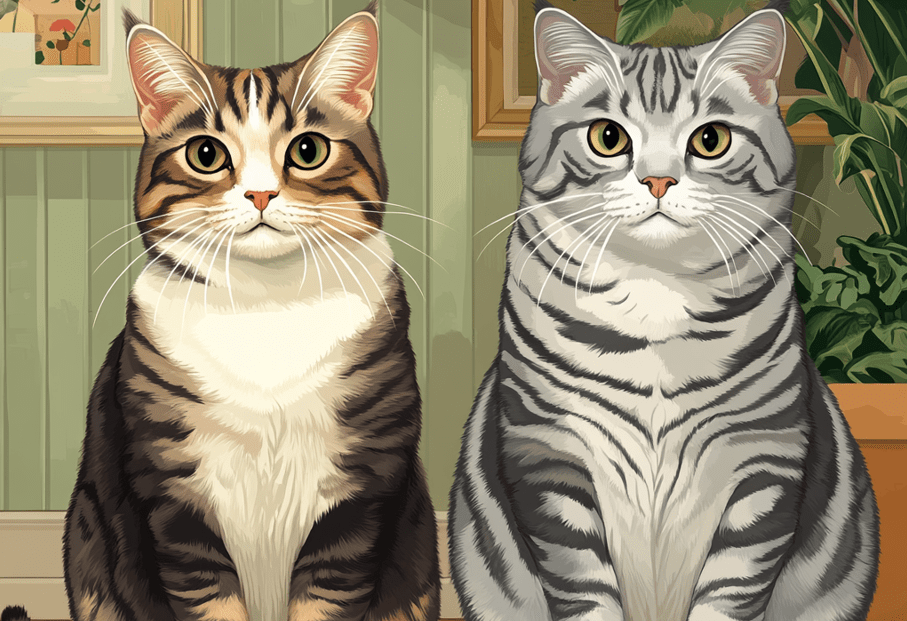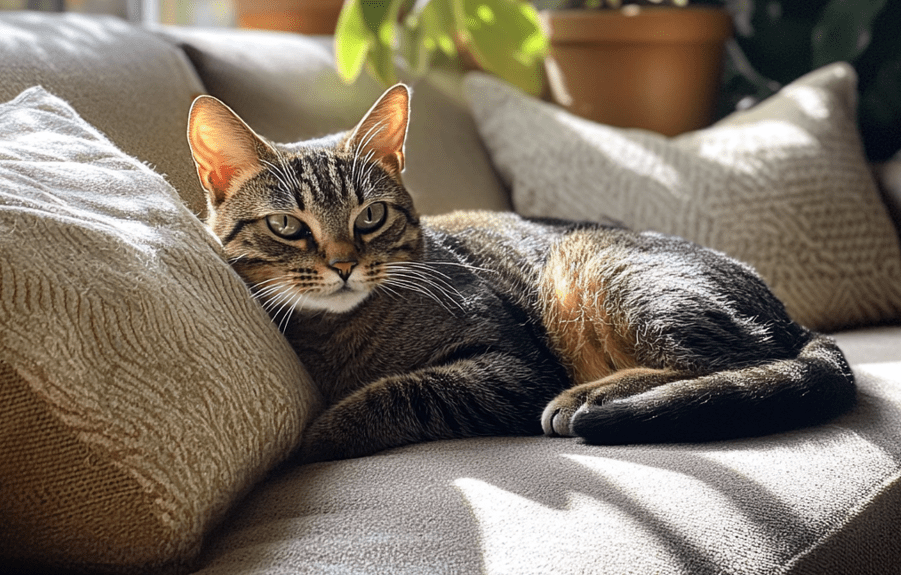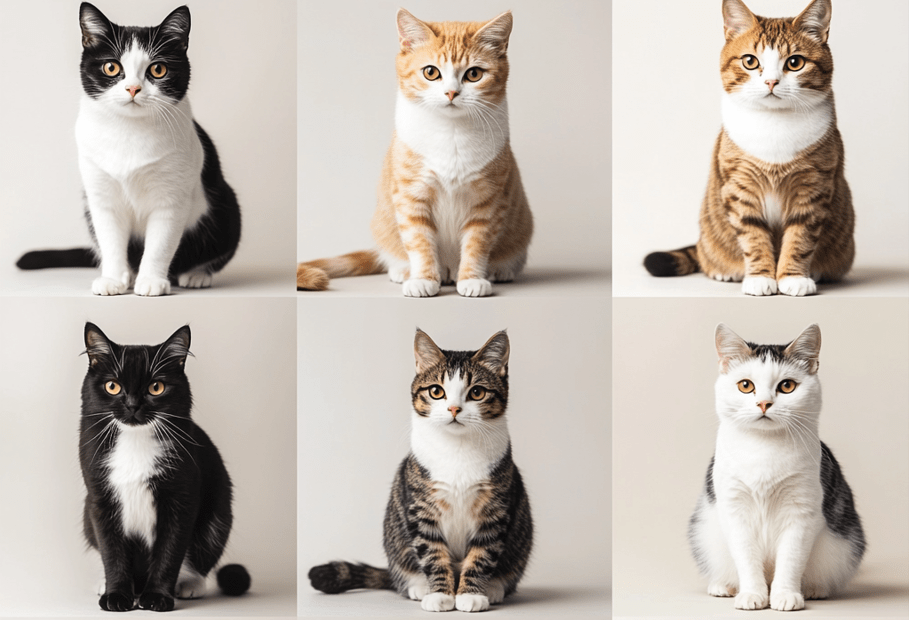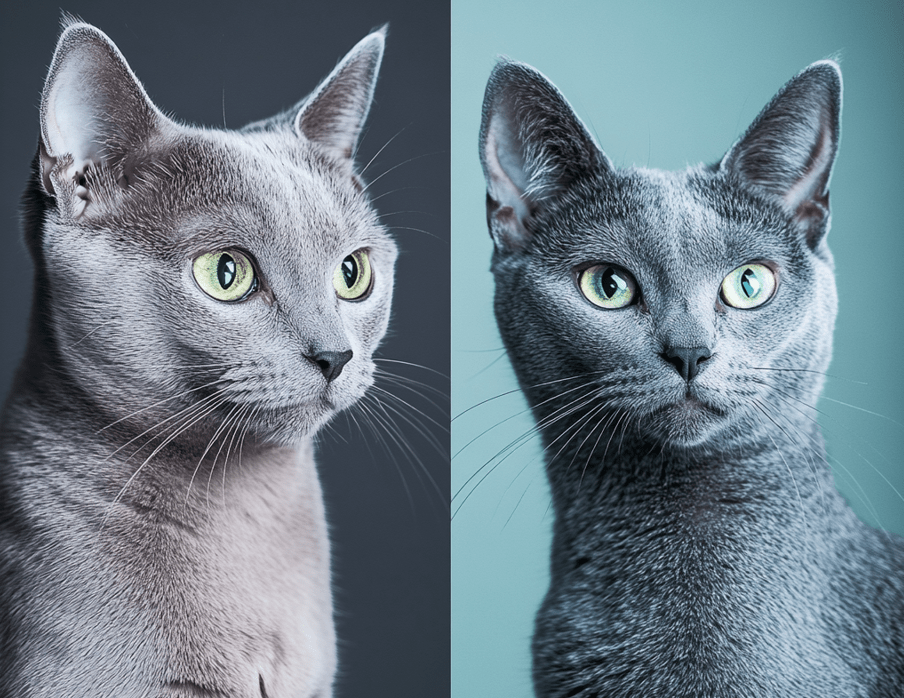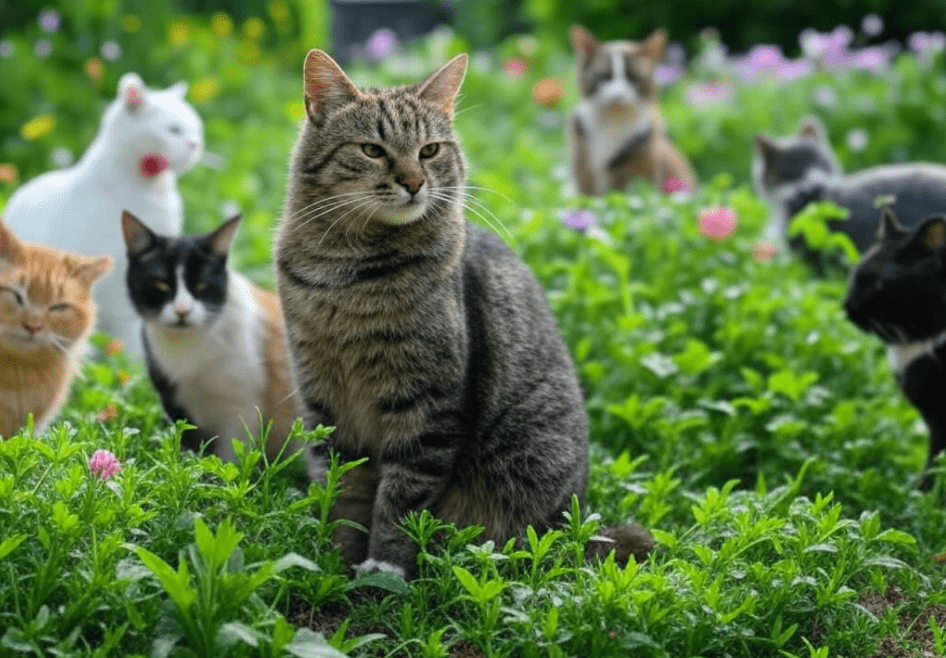
If you’re a pet parent to a Domestic Shorthair cat, you may have noticed your furry friend vomiting more often than seems normal. While occasional vomiting can be typical for cats, frequent vomiting in Domestic Shorthairs could signal an underlying issue that needs attention. This comprehensive guide explores the reasons why your Domestic Shorthair cat might be vomiting frequently, when you should be concerned, and what steps you can take to keep your feline companion healthy and happy.
Understanding Vomiting in Domestic Shorthair Cats
Domestic Shorthair cats are one of the most common and beloved feline breeds, known for their diverse coat colors, playful personalities, and adaptability. However, like all cats, they can experience vomiting for a variety of reasons. Vomiting is the forceful expulsion of stomach contents through the mouth, and it’s a natural response to irritation or discomfort in the digestive system. While an occasional episode might not be cause for alarm, frequent or chronic vomiting is a red flag that warrants investigation.
Normal vs. Abnormal Vomiting
It’s important to distinguish between normal and abnormal vomiting in your Domestic Shorthair cat:
Normal Vomiting: Occasional vomiting (once a month or less) caused by hairballs, eating too quickly, or mild dietary indiscretions (like nibbling on grass) is usually harmless. Cats are fastidious groomers, and hairballs are a common cause of vomiting in Domestic Shorthairs, especially during shedding seasons.
Abnormal Vomiting: Frequent vomiting (multiple times a week), vomiting accompanied by other symptoms (lethargy, diarrhea, weight loss), or vomiting that contains blood, bile, or unusual materials is concerning and requires veterinary attention.
Understanding the frequency, triggers, and appearance of your cat’s vomit can help you determine whether it’s a minor issue or something more serious.
Common Causes of Frequent Vomiting in Domestic Shorthair Cats
Frequent vomiting in Domestic Shorthair cats can stem from a wide range of causes, from benign to serious. Below are the most common reasons your cat might be vomiting often, along with insights into how to identify and address them.
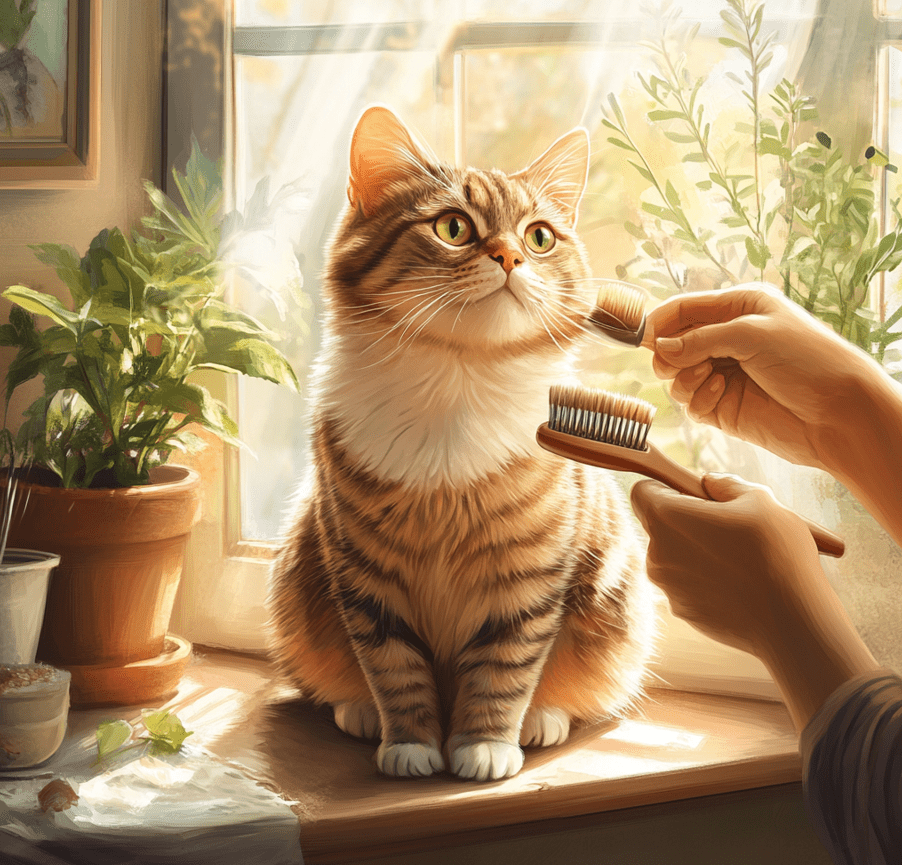
1. Hairballs
Domestic Shorthair cats have short, dense coats that require regular grooming. As they groom themselves, they ingest loose fur, which can accumulate in the stomach and form hairballs. While most hairballs are expelled through vomiting or passed in the stool, excessive hairballs can cause irritation and frequent vomiting.
Signs of Hairball-Related Vomiting:
-
Vomiting cylindrical clumps of fur
-
Gagging or retching before vomiting
-
Increased vomiting during shedding seasons (spring and fall)
What You Can Do:
-
Brush your Domestic Shorthair regularly to reduce loose fur.
-
Use hairball-control cat food or treats designed to improve digestion and reduce hairball formation.
-
Offer petroleum-based hairball remedies (available at pet stores) to help hair pass through the digestive tract.
When to Worry: If hairballs occur more than once a week or are accompanied by a lack of appetite or constipation, consult your veterinarian. Persistent hairballs could indicate an underlying gastrointestinal issue.
2. Dietary Issues
Your Domestic Shorthair’s diet plays a significant role in their digestive health. Common dietary causes of vomiting include:
Food Intolerance or Allergies: Some Domestic Shorthairs are sensitive to certain ingredients, such as grains, dairy, or specific proteins (e.g., chicken or fish). Food allergies can cause vomiting, diarrhea, and skin issues.
Eating Too Quickly: Cats that gobble their food may swallow air or overfill their stomachs, leading to regurgitation or vomiting shortly after eating.
Spoiled or Inappropriate Food: Feeding your cat spoiled food or human foods (like fatty table scraps) can upset their stomach.
Sudden Diet Changes: Switching your cat’s food abruptly can disrupt their digestive system, causing vomiting.
What You Can Do:
-
Feed a high-quality, balanced cat food formulated for your Domestic Shorthair’s life stage (kitten, adult, or senior).
-
Transition to new foods gradually over 7–10 days to avoid digestive upset.
-
Use puzzle feeders or slow-feed bowls to prevent rapid eating.
-
Avoid feeding human foods, especially those toxic to cats (e.g., onions, garlic, chocolate).
-
If you suspect a food allergy, work with your vet to conduct an elimination diet to identify trigger ingredients.
When to Worry: Persistent vomiting after eating, weight loss, or signs of discomfort (e.g., bloating or lethargy) could indicate a food allergy, intolerance, or more serious condition like inflammatory bowel disease (IBD).
3. Gastrointestinal Disorders
Frequent vomiting in Domestic Shorthair cats can be a symptom of gastrointestinal disorders, which affect the stomach, intestines, or other parts of the digestive tract. Common conditions include:
Gastritis: Inflammation of the stomach lining, often caused by stress, infections, or ingestion of irritants (e.g., plants or foreign objects).
Inflammatory Bowel Disease (IBD): A chronic condition where the immune system attacks the digestive tract, leading to vomiting, diarrhea, and weight loss.
Intestinal Blockages: Domestic Shorthairs are curious and may swallow non-food items (e.g., string, toys, or hair ties), which can obstruct the intestines and cause vomiting.
Pancreatitis: Inflammation of the pancreas, which can cause vomiting, abdominal pain, and reduced appetite.
Signs of Gastrointestinal Issues:
-
Vomiting multiple times a week
-
Weight loss or poor appetite
-
Diarrhea or changes in stool consistency
-
Lethargy or behavioral changes
What You Can Do:
-
Schedule a veterinary visit for diagnostic tests, such as bloodwork, X-rays, or ultrasounds, to identify the underlying cause.
-
Follow your vet’s recommendations, which may include medications (e.g., anti-inflammatories or anti-nausea drugs) or a prescription diet.
When to Worry: Gastrointestinal disorders often require prompt treatment to prevent complications. Seek veterinary care if vomiting is frequent or accompanied by other symptoms.
4. Parasites
Intestinal parasites, such as roundworms, tapeworms, or giardia, can irritate your Domestic Shorthair’s digestive system and cause vomiting. Parasites are more common in cats that go outdoors, hunt, or live in multi-pet households.
Signs of Parasites:
-
Vomiting that contains worms or white, rice-like segments (tapeworm segments)
-
Diarrhea or soft stools
-
Weight loss despite a normal appetite
-
A bloated or distended abdomen
What You Can Do:
-
Have your vet perform a fecal test to check for parasites.
-
Administer deworming medications as prescribed by your veterinarian.
-
Keep your cat’s environment clean and prevent them from eating raw or undercooked meat, which can harbor parasites.
When to Worry: Untreated parasites can lead to malnutrition or severe illness. Contact your vet if you suspect parasites or notice worms in your cat’s vomit or stool.
5. Systemic Health Issues
In some cases, frequent vomiting in Domestic Shorthair cats is a symptom of systemic health problems that affect organs beyond the digestive system. These include:
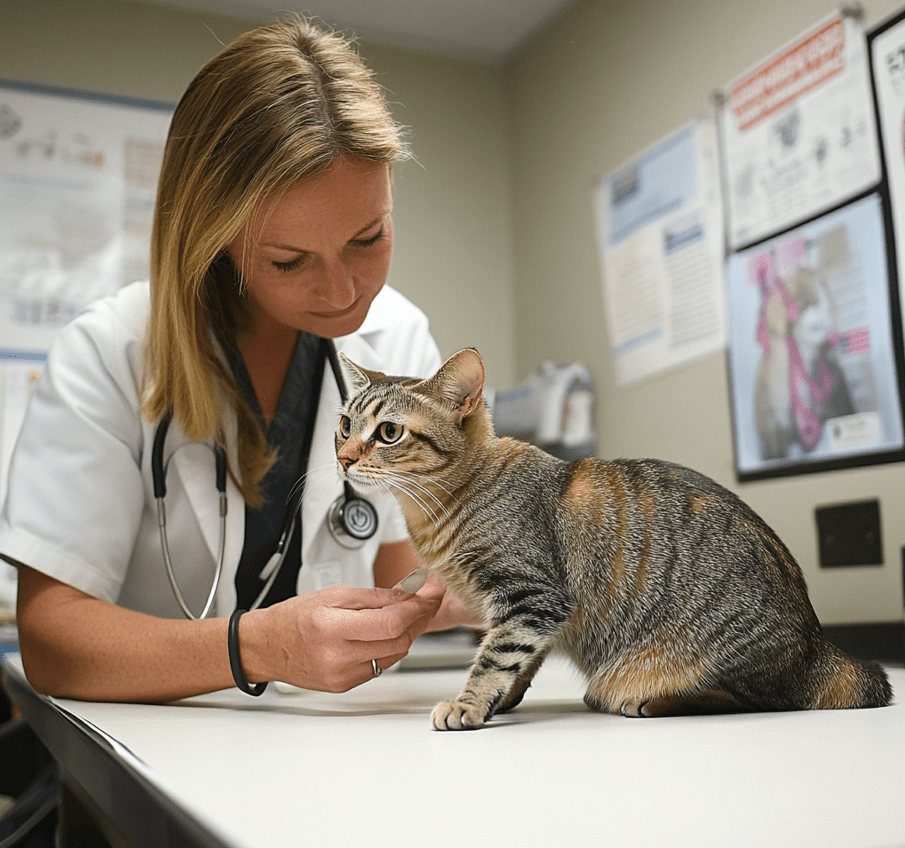
Kidney Disease: Common in older Domestic Shorthairs, kidney disease can cause nausea, vomiting, and increased thirst or urination.
Hyperthyroidism: An overactive thyroid gland, often seen in senior cats, can lead to vomiting, weight loss, and increased appetite.
Liver Disease: Conditions like hepatic lipidosis (fatty liver disease) can cause vomiting, jaundice, and lethargy.
Diabetes: Uncontrolled diabetes can lead to vomiting, weight loss, and changes in appetite or thirst.
Signs of Systemic Issues:
-
Vomiting combined with increased thirst or urination
-
Weight loss despite a good appetite
-
Yellowing of the eyes or gums (jaundice)
-
Lethargy or weakness
What You Can Do:
-
Seek veterinary care for a thorough examination and diagnostic testing, such as blood panels or imaging.
-
Follow your vet’s treatment plan, which may include medications, dietary changes, or fluid therapy.
When to Worry: Systemic health issues are often progressive and require early intervention. Contact your vet immediately if you notice vomiting alongside other systemic symptoms.
6. Stress or Behavioral Factors
Domestic Shorthair cats are sensitive to changes in their environment, and stress can manifest as physical symptoms, including vomiting. Common stressors include:
-
Moving to a new home
-
Introduction of new pets or people
-
Changes in routine (e.g., altered feeding times)
-
Loud noises or disruptions (e.g., construction or fireworks)
Signs of Stress-Related Vomiting:
-
Vomiting during or after stressful events
-
Changes in behavior, such as hiding, aggression, or reduced appetite
-
Excessive grooming or litter box avoidance
What You Can Do:
-
Create a calm, predictable environment for your Domestic Shorthair.
-
Provide enrichment, such as toys, scratching posts, or perches, to reduce boredom and stress.
-
Use pheromone diffusers (e.g., Feliway) to promote relaxation.
-
Gradually introduce changes to minimize stress.
When to Worry: If stress-related vomiting persists despite environmental adjustments, consult your vet to rule out other causes.
When to Seek Veterinary Care
While occasional vomiting may not be a cause for concern, frequent or severe vomiting in your Domestic Shorthair cat requires veterinary attention. Contact your veterinarian if you notice any of the following:
-
Vomiting multiple times a week
-
Blood, bile, or foreign materials in the vomit
-
Vomiting accompanied by lethargy, diarrhea, or weight loss
-
Signs of pain or discomfort (e.g., vocalizing, hunched posture)
-
Changes in appetite, thirst, or urination
-
Vomiting that persists for more than 24 hours
Your veterinarian may perform diagnostic tests, such as bloodwork, X-rays, ultrasounds, or endoscopy, to identify the cause of vomiting and recommend appropriate treatment.
Preparing for Your Vet Visit
To help your veterinarian diagnose the issue, provide detailed information about your Domestic Shorthair’s vomiting, including:
Frequency and Timing: How often does your cat vomit, and does it occur at specific times (e.g., after eating)?
Appearance of Vomit: Does the vomit contain food, hair, blood, bile, or foreign objects?
Other Symptoms: Note any changes in appetite, weight, energy levels, or litter box habits.
Diet and Environment: Share details about your cat’s food, treats, and any recent changes in their routine or environment.
Taking a photo of the vomit (if safe to do so) or bringing a sample to the vet can also aid in diagnosis.
Preventing Vomiting in Domestic Shorthair Cats
While not all causes of vomiting can be prevented, you can take steps to reduce the likelihood of frequent vomiting in your Domestic Shorthair cat:
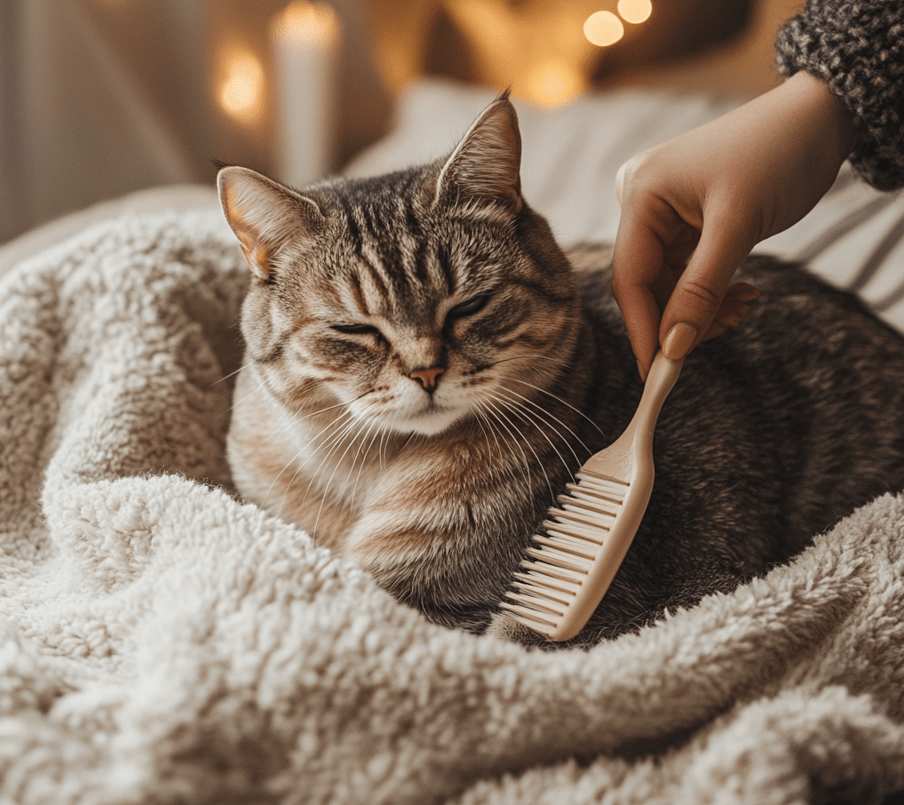
Feed a High-Quality Diet: Choose a nutritionally balanced cat food that suits your cat’s age, activity level, and health needs. Avoid low-quality foods with fillers or artificial additives.
Maintain a Consistent Feeding Schedule: Feed your cat small, frequent meals to prevent overeating or stomach irritation.
Groom Regularly: Brush your Domestic Shorthair to minimize hair ingestion and hairball formation.
Keep Toxins Out of Reach: Store household items like plants, chemicals, and small objects that your cat could ingest out of reach.
Provide Fresh Water: Ensure your cat has access to clean water to support digestion and overall health.
Schedule Regular Vet Checkups: Routine veterinary visits can catch health issues early before they lead to vomiting or other symptoms.
Minimize Stress: Create a stable, enriching environment to keep your Domestic Shorthair happy and relaxed.
Conclusion

Frequent vomiting in your Domestic Shorthair cat is not something to ignore, as it could indicate anything from a minor dietary issue to a serious health condition. By understanding the common causes of vomiting, recognizing warning signs, and taking preventive measures, you can help ensure your feline friend stays healthy and comfortable. If your Domestic Shorthair is vomiting often, don’t hesitate to consult your veterinarian for a thorough evaluation and tailored treatment plan. With proper care and attention, you can address the root cause of your cat’s vomiting and keep them purring happily for years to come.

